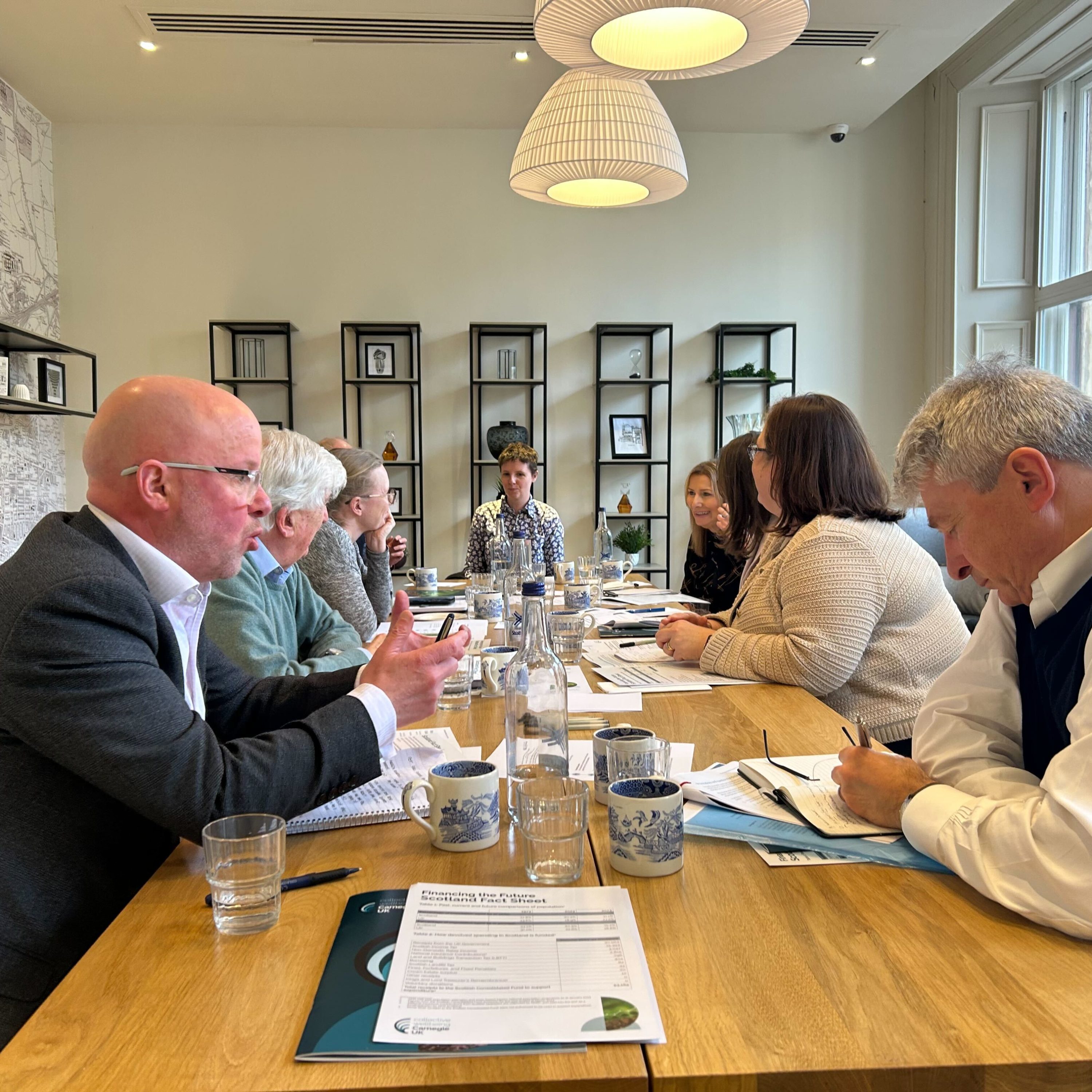Back to Financing the Future

- Jo McGilvray
- 18 March 2025
- 3 minute read
Through Carnegie UK’s ‘Financing the Future’ programme, we’ve been exploring how government approaches to raising and spending money could be used more effectively to drive better outcomes for people, helping decision makers better get to grips with present and future needs.
As part of this work, we’ve developed a discussion paper to stimulate conversation in a series of roundtables we’re hosting in the four nations of the UK, bringing together experts with different perspectives. The paper situates our conversation in (some of the very broad) financial context and discusses the state of our collective social, economic, environmental and democratic wellbeing.
Get in touch
And we’d love to hear from you too. If anything in our paper or this blog about current or future pathways of work piques your interest and you want to share your thoughts, please do get in touch.
Linked to all of this, we are curious about the concept of the social contract and its potential role in developing solutions. And this is something that has been on the Prime Minister’s mind too. In a recent article in The Times, he responded to data that says ‘less than half of young people are proud to be British’ by stating that this ‘is a signal about our social contract that cannot be ignored’. He went on to highlight some of the issues that are affecting younger people along generational fault lines – like house prices, wage stagnation, and the cost of education.
He also suggested that Gen Z are not upholding their end of the contract and railed against the phenomenon of ‘worklessness as a lifestyle choice’. But who gets to decide the terms of the contract and the language we use to express it? To me, the language of strivers v skivers feels pretty old hat. And all of this misses the fact that in every corner of our society, at every age, there is inequality, there are people not getting what they need and those at the sharp end of poverty. Perhaps we could better address this with a new social contract.
Over the next few months, we are undertaking several strands of activity to further develop this work. This will include engaging with citizens around the UK on some of these issues through new qualitative research, to understand current public perceptions to issues of tax. As well as this, in partnership with the formidable Poverty Truth Network, we will taking time together to think about our social contract and how it could be better imagined for the future.
We’re also delighted to be working with Cressida Gaukroger and Katherine Trebeck to explore international examples of government-level finance and spend levers that can improve outcomes for people now and for future generations.
In the summer, we will bring these different strands of work together and share what we’ve learned so far.
Finally, we’re starting to think more about where this work could take us in the future and will be scoping workstreams on local government finance and innovative financial approaches in the coming months. If this is your ballpark, we’d love to hear from you.
Help us make the case for wellbeing policy
Keep in touch with Carnegie UK’s research and activities. Learn more about ways to get involved with our work.
"*" indicates required fields
